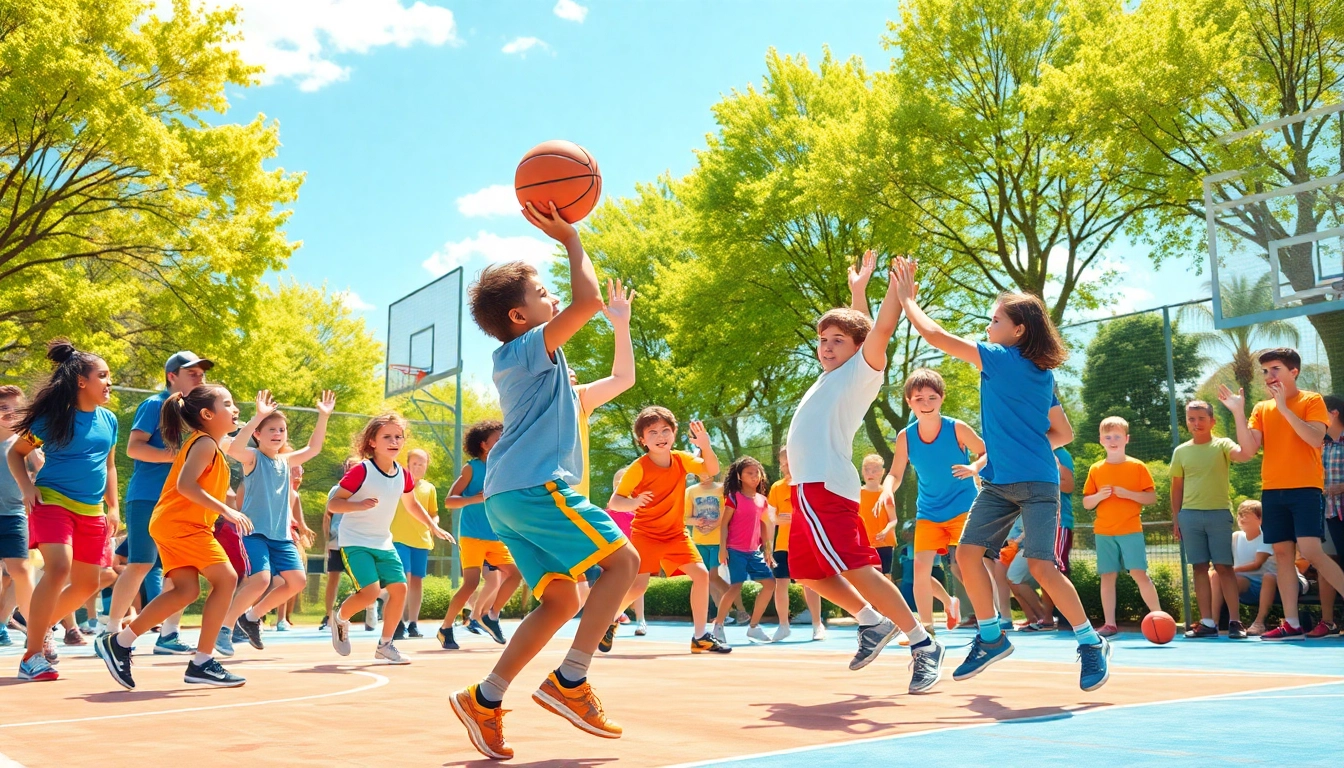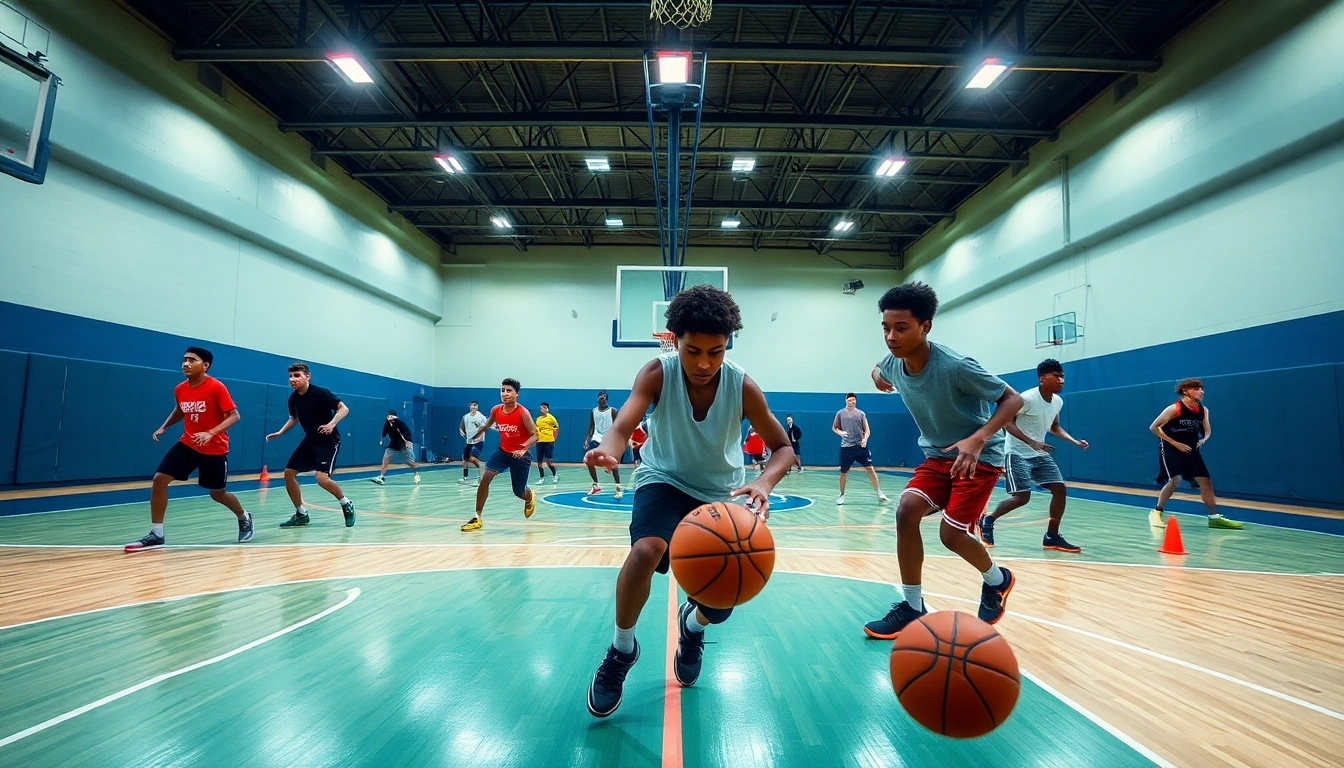1. Introduction to Young Basketball Enthusiasts
Basketball is more than just a sport; it’s a culture that fosters teamwork, discipline, and resilience. For young basketball enthusiasts, the journey begins with a simple dribble and evolves into a lifelong passion. Engaging young players in basketball not only nurtures their physical abilities but also bolsters their emotional and social skills, laying the groundwork for their future, both on and off the court. This article delves into the world of young basketball enthusiasts, exploring the importance of their involvement in sports, the skill development essential for their growth, the myriad opportunities available to them, and guidance for parents in supporting their children’s basketball aspirations.
1.1. The Importance of Youth Engagement in Basketball
Engaging young people in basketball provides a rich platform for socialization, physical activity, and emotional development. Participation in sports encourages the formation of friendships, as kids share experiences and learn to work together as a team. Furthermore, this engagement instills a sense of belonging and community, vital for young players as they grow. Research indicates that kids involved in team sports exhibit higher self-esteem and greater academic performance. Involvement in basketball enhances not only physical health but also mental resilience, a crucial attribute for facing life’s challenges.
1.2. Developing Skills from a Young Age
Skill development in basketball should begin early, as foundational abilities cultivated during youth can significantly impact future performance. Fundamentals such as dribbling, shooting, and passing serve as the building blocks for more complex skills and strategies. Young players should be exposed to various coaching styles and instructional methods, allowing them to find what resonates with them while developing adaptability and understanding of the game. Incorporating fun drills and varied practice formats keeps the excitement alive, ensuring they enjoy learning while honing their craft.
1.3. Inspiring Stories from Young Players
Inspiration plays a crucial role in motivating young basketball enthusiasts. Numerous success stories from young players illustrate the transformative power of the game. Take, for example, the story of a young girl who, despite facing bullying, used basketball as an escape and ultimately became the star of her high school team. Sharing these narratives can uplift spirits and encourage resilience, reminding young players that their challenges can be overcome through hard work and perseverance. Each inspiring story highlights the potential of young athletes to grow not just in sport but as individuals.
2. Essential Skills for Young Basketball Enthusiasts
2.1. Fundamental Skills: Dribbling, Shooting, and Passing
The foundation of any great basketball player lies in mastering the essential skills of dribbling, shooting, and passing. Young players must practice these fundamentals repeatedly, ideally under the guidance of a coach or mentor. Dribbling requires coordination and ball control, essential for maneuvering around opponents. Shooting, on the other hand, focuses on proper form and technique. Coaches often emphasize balanced footwork, follow-through, and shot selection. Passing, a fundamental yet often overlooked skill, builds teamwork and communication among players. Drills that encourage quick decision-making and situational awareness can enhance all these skills, contributing to a well-rounded player.
2.2. Physical Conditioning and Strength Training
While skill development is critical, physical conditioning should not be neglected. Young basketball enthusiasts must cultivate strength, speed, and agility, which will improve their overall performance. Age-appropriate strength training exercises such as bodyweight squats, lunges, and plyometric jumps can lay the groundwork for future athletic development without the risk associated with heavy weights. Additionally, aerobic conditioning through running drills and interval training sessions is crucial for building endurance. Ensuring that young players are physically prepared not only improves their game but also minimizes the risk of injury.
2.3. Mental Toughness and Strategic Thinking
Mental toughness is another critical component of a successful basketball player. Young athletes should learn how to handle pressure, remain focused during competition, and bounce back from setbacks. Techniques such as visualization can help players imagine successfully executing plays and overcoming obstacles. Furthermore, teaching young players strategic thinking helps them understand game dynamics, making them more effective on the court. Engaging in game scenarios during practices allows young enthusiasts to practice decision-making and learn to adapt strategies based on their opponents’ reactions.
3. Opportunities and Resources for Young Players
3.1. Local Basketball Clinics and Camps
Participating in local basketball clinics and camps offers young players invaluable opportunities for skill development and competition. These programs, often run by experienced coaches, provide structured environments where players can focus on improving specific aspects of their game. Camps typically include skill drills, team-building exercises, and even competitions. Many organizations now offer summer sessions tailored to various skill levels, ensuring that every child finds an appropriate environment to grow. By participating in these clinics and camps, young basketball enthusiasts gain exposure to different coaching styles and philosophies, enriching their understanding of the game.
3.2. Books and Multimedia Resources
A wealth of books and multimedia resources can serve as excellent tools for young basketball enthusiasts looking to enhance their understanding of the sport. Titles such as “Basketball Skills & Drills” by Jerry Krause provide detailed guidance on technique while inspiring stories like “Inspirational Basketball Stories for Young Readers” can motivate players to keep pursuing their dreams. Online platforms such as YouTube feature countless instructional videos from professional players and coaches that can visually demonstrate various skills and techniques. Encouraging young players to explore these resources can enhance their love for the game and motivate them to improve.
3.3. Online Communities and Social Media
In today’s digital age, online communities and social media platforms have emerged as vital resources for young basketball enthusiasts. Websites and forums dedicated to youth basketball promote discussions, tips, and insights about the game. Social media platforms like Instagram and TikTok allow players to share their highlights and techniques, fostering a sense of community and competition among young players globally. Engaging with a broader audience can also encourage young athletes to learn from others’ experiences and gain inspiration from watching peers excel in their craft.
4. Tips for Parents of Young Basketball Enthusiasts
4.1. Encouraging a Healthy Sports Environment
Parents play a pivotal role in shaping their children’s experiences in sports. It is crucial to create a supportive environment that emphasizes enjoyment over pressure. Encouraging young players to focus on the process of learning and improving fosters resilience and passion over results-driven anxiety. Celebrating small victories, such as improved dribbling or teamwork, is essential for maintaining their motivation and joy in the game. Parents should also communicate with coaches and remain informed about their child’s progress, ensuring a consistent approach that prioritizes well-being and development.
4.2. Balancing Sports and Academics
While maintaining athletic pursuits is essential, academic responsibilities should not take a backseat. Teaching children the importance of balance will prepare them for future challenges in both sports and life. Parents can help their children create schedules that allocate time for practice, schoolwork, and leisure activities, fostering discipline and time management skills. Encouraging them to view education as a teammate in their sports journey helps illustrate that success on the court is complemented by success in the classroom.
4.3. Celebrating Achievements and Progress
Recognizing achievements, no matter how small, can significantly boost a young athlete’s confidence and motivation. Whether it’s a well-executed play, significant progress in skill level, or a positive attitude on the court, parents should celebrate these moments. This can be done through verbal recognition, small rewards, or family outings to watch local games. Creating rituals that emphasize the joy of participating, rather than just winning, ensures that young basketball enthusiasts maintain their passion for the game.
5. The Future of Young Basketball Enthusiasts
5.1. Pathways to Higher Levels of Play
The future is bright for young basketball enthusiasts seeking to advance their skills to higher levels of play. Many players who begin in youth leagues have opportunities to join travel teams or affiliate with club programs, which often provide more competitive environments and advanced training. High school basketball can also serve as a stepping stone, with many schools promoting their best players to collegiate basketball programs. Networking through competitions and showcases can also lead to scholarship opportunities, enabling young athletes to combine their passion for basketball with higher education.
5.2. Building Lifelong Skills through Basketball
Participation in basketball extends beyond physical activity. The life skills developed through the game—time management, teamwork, problem-solving, and perseverance—are invaluable assets that can be utilized in various facets of life. Whether in their future careers or personal interactions, these skills provide a solid foundation for navigating challenges. Encouraging young players to reflect on their experiences and the lessons learned promotes a mindset geared toward lifelong growth and success.
5.3. Community Engagement and Social Impact
Youth basketball has the power to foster social change by promoting community engagement through participation and outreach programs. Many organizations emphasize the importance of giving back, encouraging young players to mentor peers, participate in community service, or organize local basketball events. This engagement not only reinforces the values of teamwork and social responsibility but also strengthens the bond youngsters share within their communities. Supporting charitable initiatives can deepen their understanding of how sports can positively impact lives beyond just the playing field.



